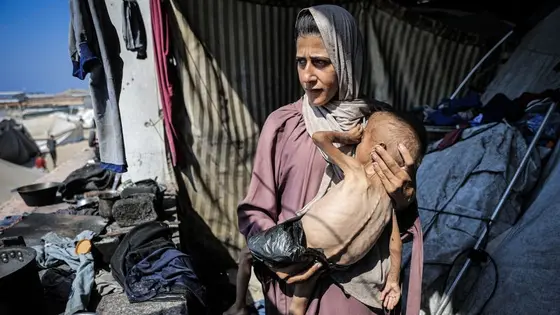T4K3.news
Argentina faces tainted fentanyl deaths crisis
A batch of medical-use fentanyl tainted with bacteria has caused dozens of infections and up to 96 deaths in Argentina. Authorities continue investigations and recalls.

A batch of medical-use fentanyl tainted with bacteria caused dozens of hospital infections and up to 96 deaths in Argentina.
Argentina faces tainted fentanyl deaths crisis
Argentina reports up to 96 deaths linked to medical use fentanyl tainted with bacteria. The official toll stands at 87 with nine more deaths under investigation. The outbreak began in May when dozens of hospital patients treated for pain or anesthesia developed serious infections. Investigators found the bacteria Klebsiella pneumoniae and Ralstonia pickettii in patients and in ampoules from two fentanyl batches produced by Laboratorio Ramallo.
Anmat, Argentina's drug regulator, confirmed contamination in the deceased and in ampoules from two batches, one of which had been widely circulated. The ampoules were recalled and authorities say the contamination may have affected more than 300,000 ampoules distributed across Buenos Aires province, Santa Fe, Córdoba, Formosa and Buenos Aires city; an estimated 45,000 had been administered before withdrawal. Ariel García Furfaro, owner of HLB Pharma, denies direct attribution and suggests contamination could have been planted. Twenty-four people tied to manufacture and sale are suspects; they are banned from leaving the country and have assets frozen as probes proceed across regions.
Key Takeaways
"Contaminated ampoules are not circulating today."
Statement from Judge Ernesto Kreplak on current status of contaminated ampoules.
"This is going to be very important to determine responsibility."
Adriana Francese, lawyer for four victims’ families, on the investigation.
"The fentanyl caused their death within days."
Alejandro Ayala, brother of a victim, describing impact.
"If the ampoules were contaminated, someone had planted the contaminant."
Ariel García Furfaro, owner of HLB Pharma, commenting on attribution.
The case exposes gaps in drug safety oversight and supply chain controls. It tests Argentina’s health system as hospitals, regulators and prosecutors juggle medical care with criminal investigations. It also highlights how quickly a single supplier can affect thousands of patients and strain public trust.
The political and regulatory dimensions may unfold as investigators map responsibility and possible policy changes. The public awaits accountability, and the episode could reshape how medicines are sourced, inspected, and recalled across the country.
Highlights
- Public trust hinges on rigorous drug safety checks
- The scale of this is unprecedented in public health
- Lives depend on clear accountability for responsibility
- When medicine becomes a risk the system pays
Public health crisis prompts regulatory scrutiny
The case raises questions about drug safety oversight, supplier accountability, and potential political fallout as authorities investigate manufacturing and recall across multiple regions.
The next steps will test Argentina’s resolve to protect patients and rebuild trust.
Enjoyed this? Let your friends know!
Related News

Surge in nitazene overdoses raises alarms across Europe

Kylie Page dies at 28 from suspected overdose

Hunger crisis intensifies in Gaza

Japan reports nearly one million more deaths than births last year

Gaza aid crisis deepens amid ongoing conflict

Rising starvation rates reported in Gaza

Death toll in Gaza rises amid aid crisis

Disturbing images reveal child malnutrition crisis in Gaza
